This Roman emperor believed he was a god. He was assassinated for it
For four years, Caligula capriciously ruled Rome, drained the treasury, and mocked the Senate—until those sworn to protect him plotted his death.

"Hoc age! Accipe ratum! Repete!" went the cry. “Take that! So be it! And again!” According to Suetonius these were the frenzied shouts of the plotters that surged toward Caligula as he left the Palatine Games after noon on January 24, A.D. 41. These were men who had all once sworn loyalty to their victim, but growing anger had boiled over into a determination to end a hated emperor’s life.
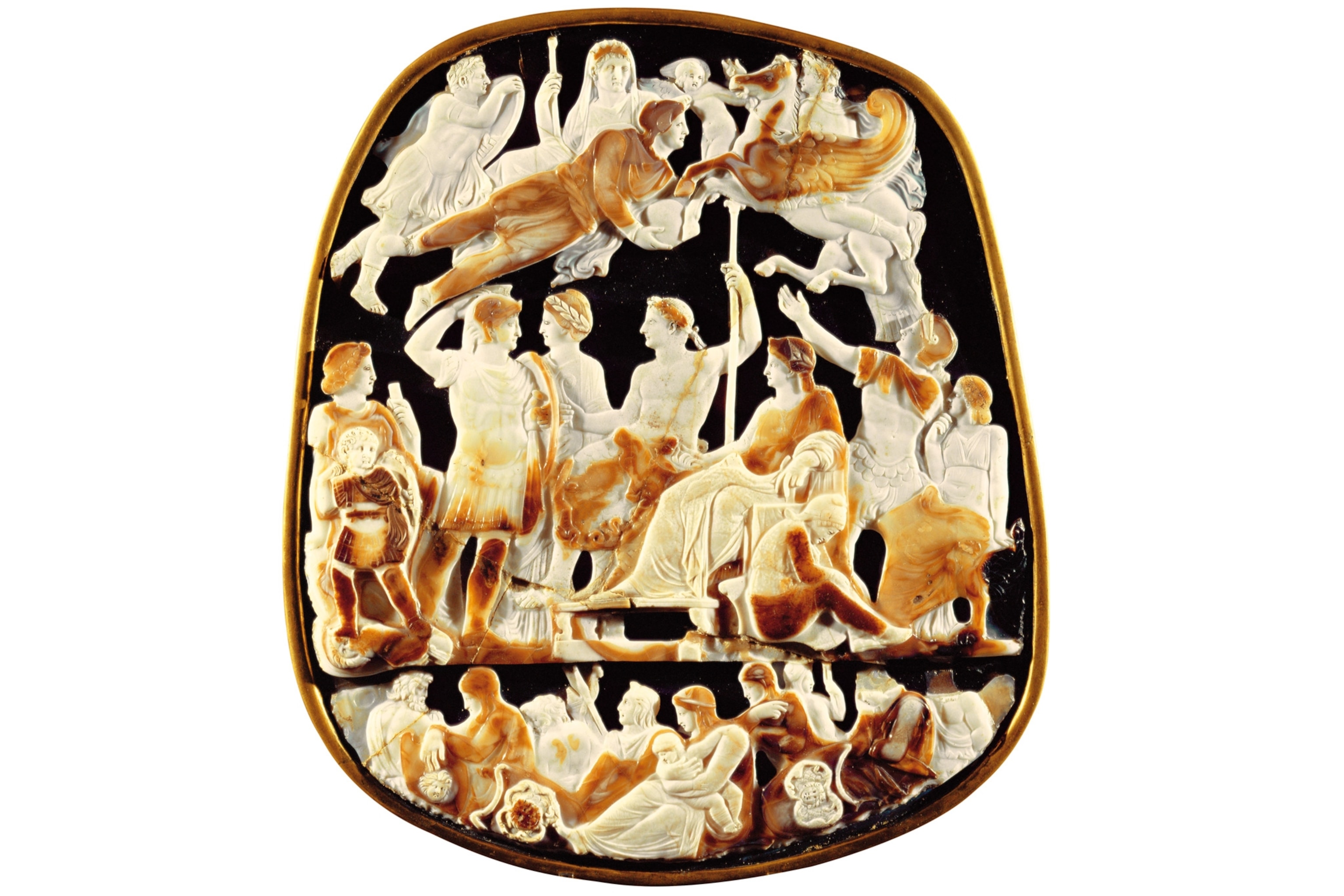
It was not always so. Gaius Julius Caesar Germanicus, better known by his childhood nickname of Caligula—meaning “little boot”—had once been popular, but between A.D. 39 and 40 his character changed. There were rumors that the emperor was unwell and some spoke of a disease; others described a personality-altering potion he had been given by his wife, Caesonia. Whatever the cause, Caligula grew nasty and it was the Roman upper classes that suffered most. (Caligula wasn't the last emperor to be assassinated: Elagabalus's hard-partying reign was also too much for the Roman Empire.)
The emperor makes enemies
According to his biographer Suetonius, Caligula believed himself to be a god and often said: “Remember that I have the right to do anything to anybody.” He humiliated senators by making them run behind his litter or forcing them to fight for his amusement. Suetonius wrote, "When the consuls forgot to make proclamation of his birthday, he deposed them, and left the state for three days without its highest magistrates."

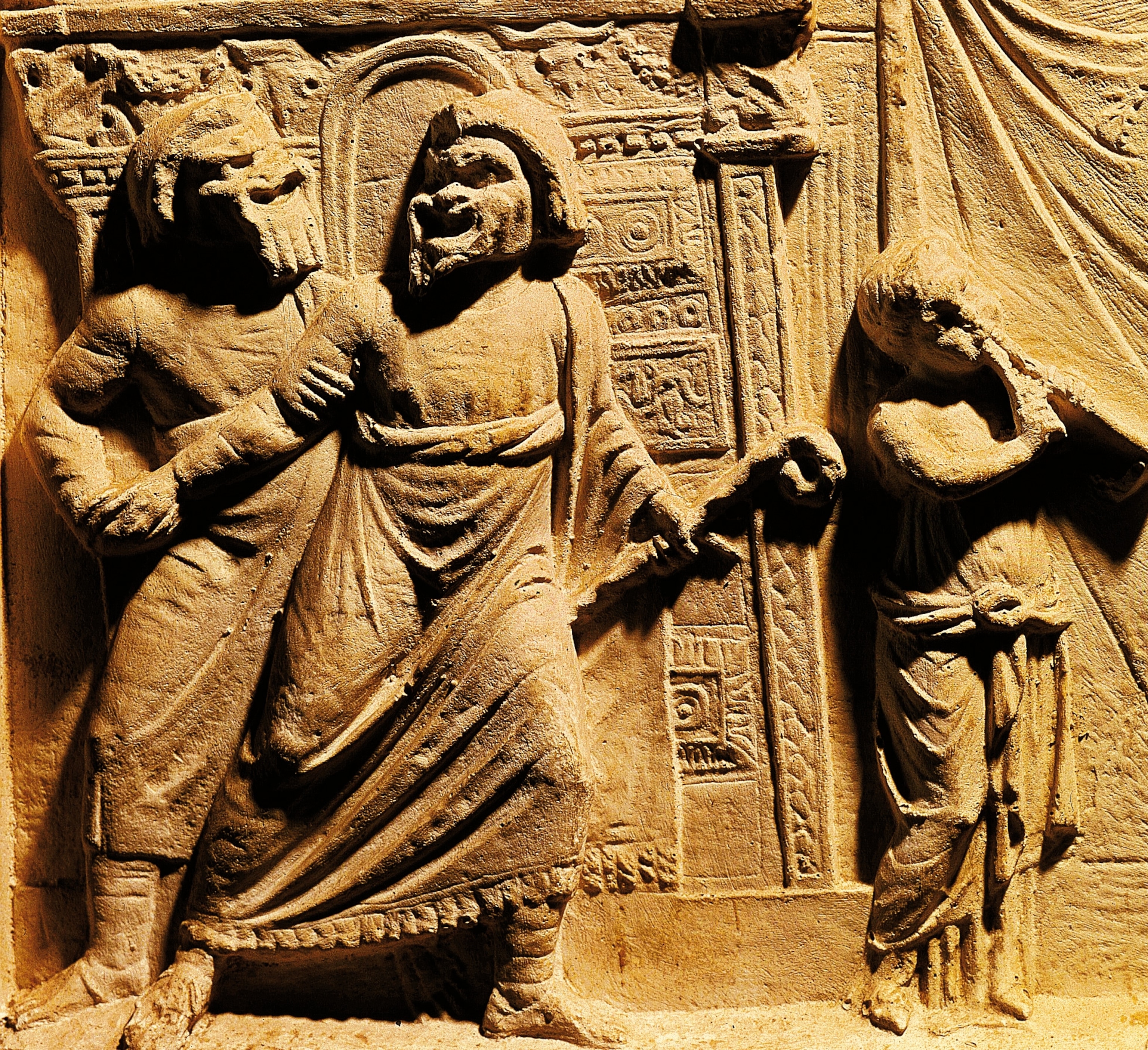
Caligula spent extravagently during his reign, on both projects and frivolous projects. He had no qualms about resorting to all manner of trickery and extortion to get the money that funded his excessive expenditures. High taxes were set, inheritances confiscated, and prominent wealthy citizens found themselves subject to legal action. Nobody’s possessions were safe and many lived in fear of becoming the next target of Caligula’s caprice.
Even so, some sympathized with his actions, which they chose to see as Caligula standing up to privileged classes. However, even the plebs’ enthusiasm for the emperor steadily waned.
The unusual suspects
Numerous plots, real or alleged, were hatched, like the one led by Lentulus Gaetulicus in Germania in A.D. 39, and another devised by close followers of Callistus, one of the richest men in Rome. Many yearned to take revenge on the emperor for past affronts but almost everyone remained afraid of falling out of his favor. The Roman historian Tacitus summed up the situation perfectly in his dramatic expression ocultae Gaium insidiae, “hidden malice toward Gaius.” Secret hatred seethed beneath a frightened mask of adulation. (Citizenship was the path to power in ancient Rome.)
Historian Cassius Dio wrote that practically everyone at Caligula’s court wanted him dead. Even those who were not actively conspiring to kill him kept quiet and allowed plots to proceed in the hope of ending the nerve-wracking uncertainty of their possessions and lives being utterly at the mercy of a tyrannical and capricious emperor.
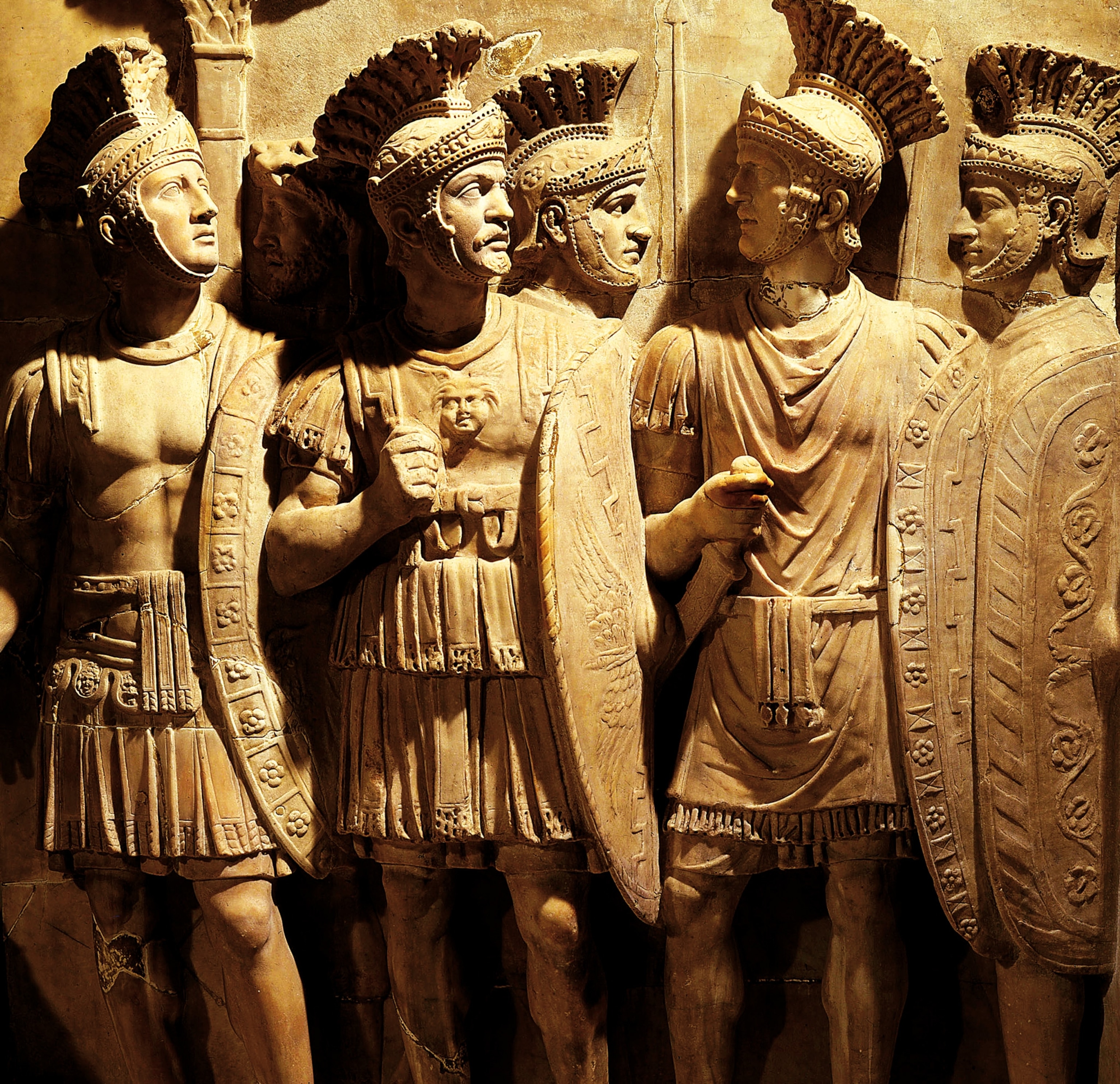
In The Antiquities of the Jews, the first-century Jewish historian Flavius Josephus records that Caligula faced hostility from all sides. He said that there were three groups of conspirators simultaneously involved in the plot that ended Caligula's life. One was headed by Emilius Regulus, about whom little is known. Annius Vinicianus led another group and was apparently somehow connected with a thwarted coup in A.D. 39.

Cassius Chaerea, a member of the Praetorian Guard (the troops closest to the emperor), led the third. Chaerea's motives seem to have been personal as Caligula had subjected him to public humiliation and cruel practical jokes. Chaerea wanted revenge but turned to others for support, including a fellow tribune and one of his superiors, a prefect of the Praetorian Guard. Concealing his personal hatred, he tried to convince them to join him in denouncing Caligula as the oppressor of Rome and the empire. He failed to secure explicit support. However, he revealed his plans to a trusted colleague, another tribune, Cornelius Sabinus, and the pair became the principal players in the plot to end the emperor’s life.
The Praetorian plot
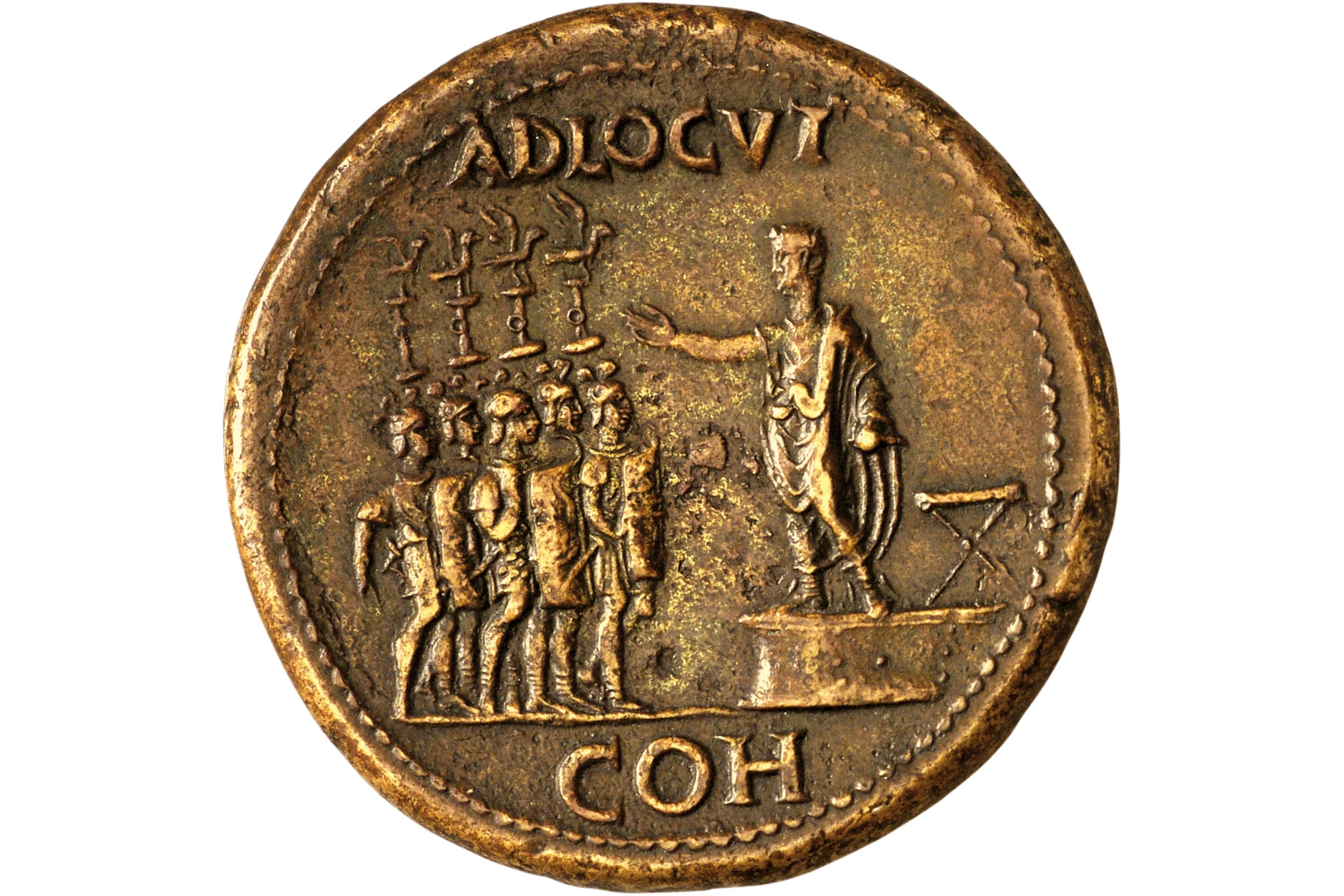
It’s almost certain that there were many more plots than those mentioned in the written accounts. Possible widespread involvement of Caligula’s court would explain why he never learned of the threat. Yet, despite support and ample opportunities, the plotters hesitated when it came to actually carrying out the deed. Having exhausted all other options, they finally decided to strike the fatal blow during the Palatine Games. These were a series of events held each January to honor Augustus, the first emperor of Rome who ruled from 27 B.C. to A.D.14.
Initially the attack was planned for the first day of the games, but complications and indecision pushed the date to the games’ final day. They dared not delay any longer—people were by now openly talking about the plot, and the emperor was about to set off for the relative safety of Alexandria in Egypt. Meanwhile the auguries were warning Caligula of impending doom: The oracle at Fortuna’s temple in Antium warned him to protect himself against Chaerea; the mathematician and astrologer Sulla had predicted that the emperor would die a violent death. (Rome's Vestal Virgins were their most powerful priestesses.)
A fine day to die
As the sun rose on the final day of the games, Chaerea met with his co-conspirators, then went to the palace in the early hours of the morning. Meanwhile, on Palatine Hill, crowds began to jostle along the Sacred Road, ancient Rome’s main street. In the half-light of dawn they gathered around the theater built for the games where Caligula was due to attend a performance. On this special day the best seats were not reserved, and when the venue opened, the mob of men and women, citizens and slaves, rushed inside, shouting and cheering. (Rome's emperors staged massive mock naval battles.)
When Caligula finally arrived at the theater, he opened the day’s festivities by making a sacrifice to Augustus. Indeed Caligula appeared to be in a fine mood: He was talkative, courteous, and friendly. He took his seat in the right-hand side of the theater, surrounded by his close family and friends. The watchful Chaerea sat near Caligula, having made sure that his co-conspirators were in position inside and outside the building.
The day’s performance was Laureolus, a popular mimed play by Catullus. It told the story of a gang of bandits whose leader, Laureolus, was adept at escaping from dire situations until one day he was caught and crucified. It was to be followed by the tragedy Cinyras. Both were to be performed by the great actor Mnester. A nighttime show was also planned, in which Egyptians and Ethiopians would perform scenes depicting the underworld—as imagined by Romans, with the entertainment rounded off by war dances and sacred songs about religious mysteries. (Chariot races were among Rome's favorite entertainments.)
A bloody end
Extending into the next day, the plays had not finished. Sometime after midday Caligula decided to have a bath and lunch, intending to return to the festivities later. He had made similar arrangements on previous days. By then some plotters had grown impatient, but they were stirred by the public’s sudden cries that announced that caesar was on the move. His procession left the theater led by notables such as Claudius and Valerius Asiaticus, but then Caligula made a fateful decision. He deviated from his usual well-guarded route, along which the procession had already started, and instead took a shortcut through a dark, narrow, lonely passageway. Suetonius called it a “crypt” and it may have run between the houses of Tiberius and Nero. (Is it time to rethink the rule of Emperor Nero?)
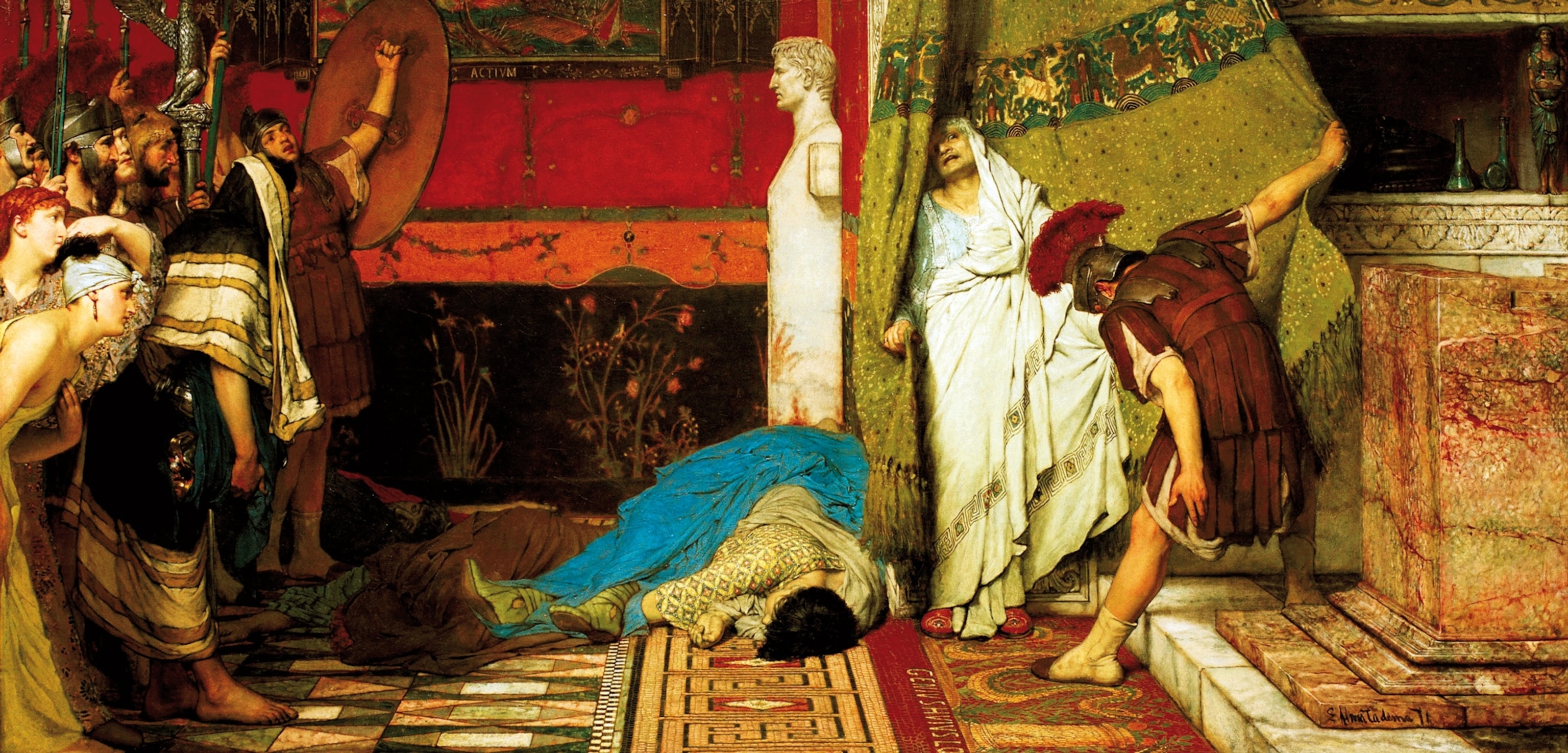
It was there that Chaerea found Caligula. The soldier raised his sword and slashed him between the collarbone and neck. Caligula tried to run away but Sabinus was lying in wait and knocked him to the ground with another sword stroke. According to Suetonius, after Cassius Chaerea and Cornelius Sabinus struck Caligula, the plotters stabbed him thirty times, continuing to attack after he was dead. Cassius Dio claims they even “tasted his esh.” Caligula’s wife and daughter were also murdered to prevent any possibility of a legitimate successor.
After the assassination, the Senate met in the capitol. Led by the two consuls, Saturninus and Secundus, they had to decide on the future of Rome and its empire. They could select a new emperor from among its leading senators; many others wanted to restore the republic as before Augustus. Alternatively they might return to the even older system of monarchy. But their lofty deliberations were cut short as the army outmaneuvered them. Claudius, the assassinated emperor’s uncle, was discovered hiding by a unit of Praetorian Guardsmen. They preferred imperial rule, a system that had greatly benefited them, so they took the frightened senator back to their camp to proclaim him emperor. For the following days the future of Rome hung in the balance, but few mourned the murder of Caligula.